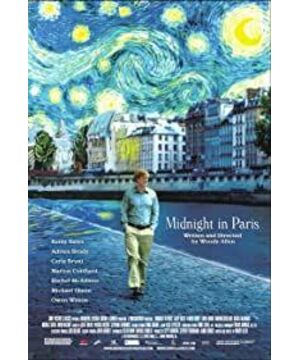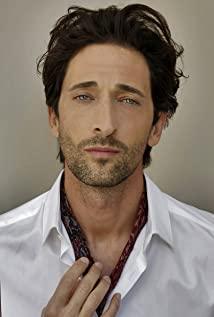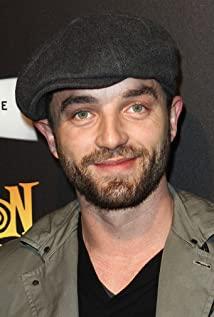Woody Allen’s answer has a strong priority. He obviously recognizes that the actor Keel Pande frequently traveled through the 1920s and competed with Hemingway, Fitzgerald, Stein, Picasso, and Buñuel. Waiting for the night tour of the literary and artistic masters is for a "flowing feast", while the beauty Adyana is a little wrong, adoring the turbulent Impressionist masters at the end of the century. At the end of the century, the little law detective who secretly pursues Kiel, his subconscious is the most brilliant, perhaps In golden Versailles, the proud sun dynasty? From the perspective of plot placement, making Adyana "more retro" is to support her, so as to prevent Kiel from sticking with her, and the pit is digging deeper and deeper and unable to jump out. Xiaofa's King Louis fragments are purely funny. So I was blindfolded, and what made Woody Allen dream back at midnight was actually just Gere's good luck.
But in this way, the script writer becomes Hemingway. His well-known memoir does indeed support a considerable part of the movie. For example, Master Hai stumbles on Fitzgerald's family affairs, is difficult to create and worry about-and even asks Kiel to pick up the scene of his wife jumping in the Seine-exactly like a book. The dialogues in "For Whom The Bell Tolls", the observation of love and death, the trust in Stein's foresight, and the comics of various characters are vaguely traced. The bursts that belonged to Woody Allen himself were few and far between. Except for the passionate "Paris is the hottest spot in the universe", the rest was not coherent. And the actor put aside all the difficulties of his time: the approaching wedding date, the picky parents-in-law, the fiancee who lacks common language, and her superior friend, completely resisting the practice with nothingness, which seems a bit superhuman. Looking at the celebrities played by unknown celebrities in the macular film, I seem to plunge into a penis filled with Hemingway's brain waves. Of course, joy has nothing to do with Woody Allen himself. His Keel was 21st. Century Paris was squashed and rounded, which is in line with the real sorrows and joys of the tides and tides in the sunny and rainy sky of Paris.
In comparison, I prefer Woody Allen’s other Paris-related film "Everyone says I love you" (Everyone says I love you), and I prefer his deep fall into Julia Roberts. , Immediately lost, the long string of confession or rather confession, as well as the difficult dancing by the Seine, are absolute broken lines, which are the sparks of accidental factors, neither alienating the artistic temperament of Paris, but also Quite allenized. Paris, in the final analysis, is a huge scene, in which all living beings are like fish drinking water, knowing the cold and warmth, and will not be otherworldly because of the halo gathered around her. Yes, Hemingway has long become the cultural coordinates of Paris, as Alain De Botton said: Every skillful writer foregrounds notable aspects of experience details that might otherwise be lost in the mass of data that continuously bathes our senses--and in so doing prompts us to find and savour these in the world around us, the greatest benefit we get from a place while walking may be the momentary beauty and eternal feast that the unique experience of the forerunner contributes to it. However, it is a pity that Woody Allen stagnated on the surface of this encounter, countless exclamation points lifted off, personality language, willful waved everywhere, revolving lanterns, one after another, but unable to enter the hearts of the people, and finally fell outside the Nuan Nuan Bar Not embarrassing rain. Does he just want to worship the golden wind and jade dew of the year? However, Hemingway's book contains hunger, poverty, doubts, reading, lover, and constant spurs on himself. Paris reveals the truth of professional writers to him without exception, and moderately accommodates him. This heavy quality of life is omnipresent. Urban resilience, I think it is the "good" of Paris.
The moment Keel walked out of Shakespeare's bookstore, I remembered "Before Sunset", the continuation of a romantic relationship, which was also spread from this simple and old store. There was no longer a glimpse, he just swallowed the smoke ring, waiting for her who might appear in the seat where Hemingway had been sitting and lying down, she just heard the news, hesitated in every way, and finally glanced at him from the gap between the bookshelves. All the wind and smoke in the past landed on the big tray of "Live", and they only had a few hours before disposal. This is Paris, a cosmopolitan city that is not broken. I have seen Le Code a changé (Le Code a changé) in the past year. People were talking loudly on the basement floor and downstairs across the wide streets. Their eyes changed and their emotional feng shui also changed, just like Sangbei’s living paintings. , That is also Paris. When I watched "Paris" a few days ago, there was Fabrice Luchini, who put the city positioning of "luxury, tranquility, and enjoyment" on his lips. He was full of eloquence and personable, but he had feelings for the entity. , Dreadfully rubbing the side, and severely ill Romain Duris (Romain Duris), with dying eyes nostalgic for the familiar big city, and it actually refuses to give priority to him, the beautiful girl living in his apartment across the street is not his after all . These are small rounds in the depths of Paris. Everyday comedies are staged in the world. Naturally, they are by no means perfect, but I think they are becoming "best". Woody Allen portrays Paris. If he is so leisurely when thinking about New York, or simply photograph Paris in New York style, like his "Everybody", that is what I have been looking forward to. What I want to see, after all, is not Woody Allen in Paris, but Woody Allen's Paris. We all know that you love this city, and we all hope that there is you in this city.
At the end of the film, it rains, old romances are extinguished, and the path of new adventures is still unclear. Think about translocation, it's really a painful situation. At this time, Keel met Gabriela, just like him, a girl who likes to listen to Cole Porter who loves the rain--there is no need to ride in the midnight strange car to touch her hair and skin, he immediately put away Ah Q's face, excitedly and dullly, began to invite. Once again, I was dead. It was better to walk on. At this moment, I saw the old Allen and his Paris.
View more about Midnight in Paris reviews









